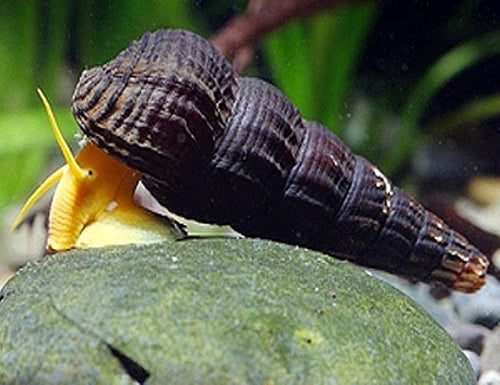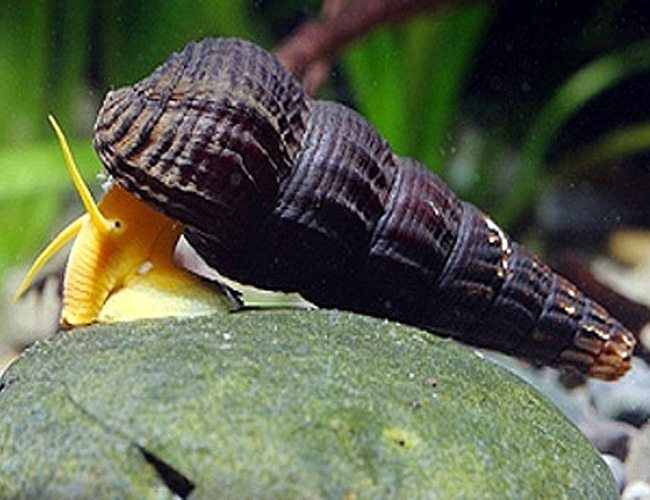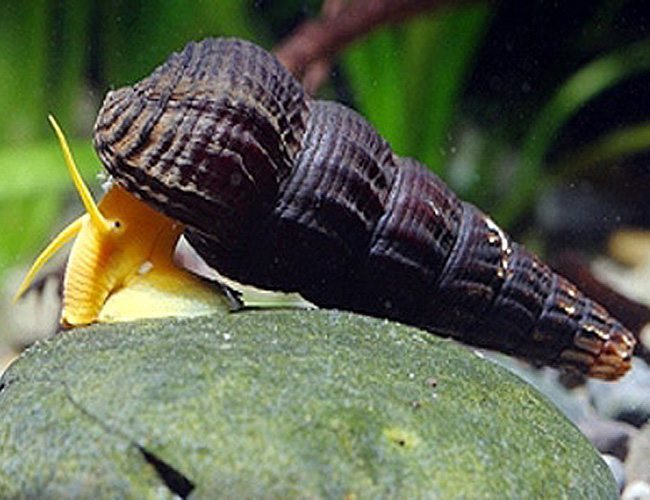Rabbit Snail-Assorted
Rabbit Snail-Assorted
check_circle Fast Shipping
check_circle Quality Products
check_circle Affordable Price
Reach out to us on ''available to order'' items via WhatsApp or email
Out of stock
Couldn't load pickup availability

Rabbit Snail-Assorted
package_2
Product Description
Product Description
All our fish, shrimp and corals are bagged with fresh oxygen as well as a heat pack in winter.
When ordering livestock please select the box size and add it to your cart for accurate overnight (1-2 days) shipping costs. A small box can take 1-2 bags and a medium box 6 bags. One bag fits max 10 small (1-3cm) fish or max 2 medium (3-5cm) fish or max 1 large (>5cm) fish.
ONE SPECIES PER BAG. Eg: One bag of 10 neon tetra
Rabbit Snail (Tylomelania sp.)
Description:
-
Appearance:
- Size: Typically grows to about 3-4 inches (7.5-10 cm) in length, though some can reach up to 6 inches (15 cm).
- Color: Usually varies from yellow to brown, with some species displaying striking patterns and a unique, almost rabbit-like shell shape.
- Shell Shape: Spiral-shaped shell with a pronounced apex and a somewhat elongated, tubular appearance. The shell often has a smooth or slightly textured surface.
- Body: Soft, elongated, and somewhat flattened, with a distinctively long foot and tentacle-like structures.
-
Behavior:
- Activity Level: Generally slow-moving and peaceful.
- Social Behavior: Typically non-aggressive and can be kept with a variety of tank mates. Prefers a calm and stable environment.
Care Requirements:
-
Tank Size:
- Minimum: 10 gallons (38 liters) for a small group. Larger tanks are better to provide ample space and maintain stable water conditions.
-
Tank Setup:
- Substrate: Soft, sandy substrate is ideal. Avoid coarse or sharp gravel as it can damage their soft body.
- Decorations: Provide plenty of hiding spots with rocks, driftwood, and plants. Ensure the tank has ample surfaces for grazing.
-
Water Parameters:
- Temperature: 72-78°F (22-26°C). Maintain a stable temperature within this range.
- pH: 7.0-8.0. Slightly alkaline to neutral water is preferable.
- Hardness: Prefers harder water with a calcium content to help maintain shell health.
- Filtration: Moderate filtration is suitable. Ensure water flow is gentle to avoid disturbing the snail.
-
Diet:
- Primary Food: Herbivorous. Feed a diet of algae wafers, blanched vegetables (e.g., zucchini, spinach), and specially formulated snail food.
- Supplemental Food: Can also be offered occasional calcium supplements or crushed cuttlebone to support shell health.
-
Behavioral Considerations:
- Compatibility: Generally peaceful and can be kept with other peaceful fish and invertebrates. Avoid aggressive or fin-nipping species.
- Tank Mates: Compatible with a wide range of tank mates, including small fish, other snails, and non-aggressive invertebrates.
-
Tank Maintenance:
- Water Changes: Regular water changes of 25-30% weekly are recommended to maintain water quality.
- Cleaning: Keep the tank clean and monitor water parameters closely. Ensure that there are no sharp objects in the tank that could harm the snail.
-
Health Care:
- Observation: Monitor for signs of stress or illness, such as a damaged shell or changes in behavior.
- Treatment: Maintain high water quality to prevent diseases. If the snail’s shell shows signs of damage or erosion, ensure a proper calcium supply in the diet.
-
Additional Notes:
- Lifespan: Typically 2-3 years with proper care.
- Behavioral Trait: Rabbit Snails are known for their slow-moving, gentle nature and their unique, rabbit-like shell shape. They are excellent scavengers and help in algae control.


